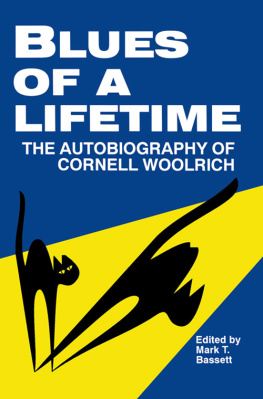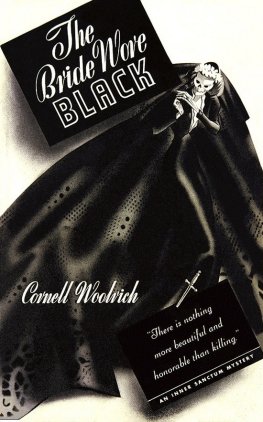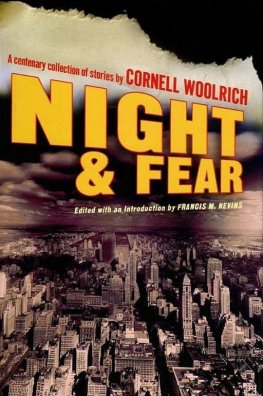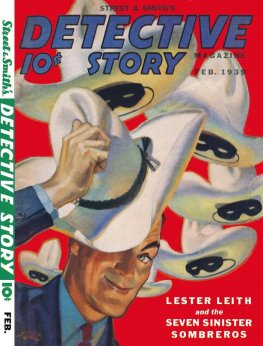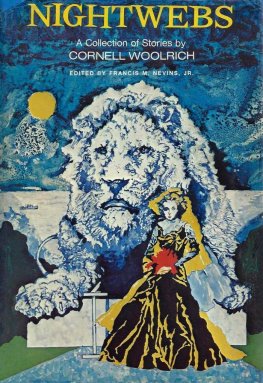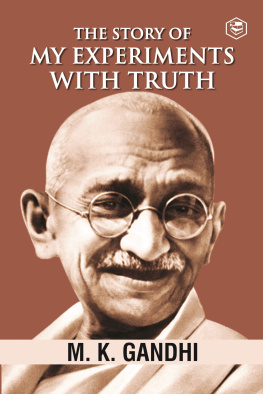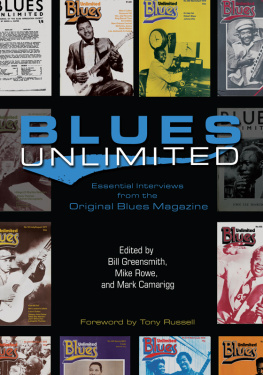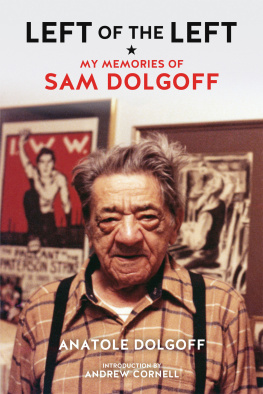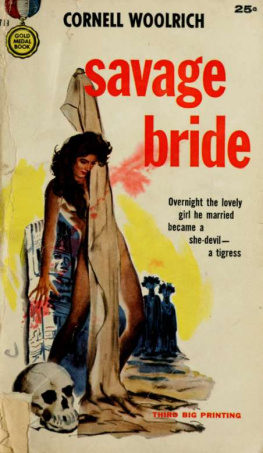Appendix:
Fragments from the Woolrich Archives
Blues of a Lifetime was intended, at some point, to include a sixth section, in addition to the five that Woolrich completed. Among his papers is a table of contents showing The Maid Who Played the Races as the sixth chapter; however, no title is offered for the missing fifth chapter. Eventually Woolrich abandoned the idea of writing yet another personal story. The table of contents recorded in his notebook, a 1937 Marquette-brand diary (in the archives at Columbia University), shows clearly that The Maid Who Played the Races should be the fifth and final chapter of his autobiography.
However, there is one glaring omission in this volumethe story of Woolrichs failed marriage. Nevins provides the fullest account available in his Cornell Woolrich (70-77). And a lengthy contemporary account can be read in the 9 July 1933 issue of the Cleveland Plain Dealer.
The following narrative (Part 1 of the Appendix) is made entirely of bits of prose (fiction) that can be found in the Woolrich archives at Columbia University. Read together, in this artificially edited sequence, they appear to tell the story of a failed marriage. Only the reader can judge how closely the fiction represents truth.
Part 2 is Woolrichs intended ending for his autobiography.
Part 1
Outline of a Missing Chapter?
...We had a little house-warming, just for and by and with, the two of us. No noisy noise, no noisy guests, nobody else. Just the two, we two, the me of it and the you. I brought in a bottle of Moet and Chandon, but we only had about one drink apiece of that (and in her case just a lip-wetting) and then, somehow, I dont know how, we started to talk.
Youre not afraid of me, are you? I said at one point. I indicated the four sides of the room by swinging my upped thumb around them in a twirl. Of this, and me, and tonight?
No, she said quite simply, looking straight at me, untroubled, unevasive. Youre my destiny. Ive been coming straight toward you ever since I was born. You and this room, and this night....
But mostly we went dancing.
After awhile we started to stay home about once a week.
Then after awhile we stayed home every second night or so.
Then after another while we only went out about once a week; wed come full circle.
We were shaking down into marriage.
She had a pretty good knack for cooking, for a rookie, or if she didnt, it was all right with me, I didnt notice the difference. Just having her across the table made the food seem swell.
The apartment was easy for her to handle, just one oversize room with bed- and pantry-alcoves. We left it pretty much as it was.
... I woke up about two oclock in the morning, everything dead still. I wanted a drink of water, or told myself I did anyway. She was sound asleep, or seemed to be; never moved as I got up. I shucked on a robe, went to the tap, and ran a little water into a glass. But then I didnt drink it after all. I carried it over to the window with me and stood there holding it in my hand, looking down into the street.
The street was empty, and gun-metal-gloom in color. No one on it, nobody, nothing that moved. Not an eddy of dust, not a cat on the prowl. I dont know why, but that made it less quieting than if there had been. The switch in the traffic-light control box up on the corner gave a click in the stillness that was as loud as the fall of a loose handcuff.
Still holding the water, I turned around and came back to the bed. Without moving, without changing position at all, she asked through closed eyes and all: Anyone there?
No, I answered tersely, and got back to bed.
There was this tiny fist-sized cloud on the horizon now, no more than that.
But a tiny fist-sized cloud can mean a storm is coming, looming and monstrous.
... She was just lying there, on top of the bed, on top of the covers, face down. Still, but I knew she wasnt sleeping. I couldnt see her face, but I knew she wasnt crying either. She was sullenly smouldering. And it wasnt the neglected cigarette alongside her on the edge of a tray, spelling out its self-combustion in a weeping-willow strand of gray, that gave me the image alone. Smouldering was expressed in every turn, every line, of her limp, prostrate, quiescent, waiting body. Almost quivering with waiting and with smouldering, although it didnt move.
There was only one answer, one possible, inevitable, implicit answer, and I gave it to her. I gave her the answer that cinched it, the answer that clinched it, the answer that wrapped it up.
I raised my eyes, and looked up into the middle of her laughter, and asked: Then what do you want me for?
Her laughter crumbled away and died. She sat down suddenly, as though a spring had broken. She never did answer me at all from first to last, never gave me any answer. All she did was pinch the bridge of her nose tightly between her fingers as though it hurt her there, and crush her eyes closed hard. All she said was Oh, God! and shuddered all over, as though she felt cold, and as though she felt o)d, and as though she felt lonely.
Part 2
Ending
I was only trying to cheat death. I was only trying to surmount for a little while the darkness that all my life I surely knew was going to come rolling in on me some day and obliterate me. I was only trying to stay alive a brief while longer, after I was already gone. To stay in the light, to be with the living, a little while past m; time. I loved them both so. A fool and his machine. Yes, a fool and his machine.
a fragment from Woolrichs notes for Blues of a Lifetime
Blues of a Lifetime
(Personal Stories)
by
Cornell Woolrich
Each of us, alone, unaided, of his own powers, must unravel the riddle... before death, or else part in despair.
Buddenbrooks, Thomas Mann
I
Remington Portable NC69411
The first section of Blues of a Lifetime is particularly valuable for Woolrichs biographers. It is the episodic account of his motives, while a student at Columbia University, for writing his first novel. From time to time, the chapter glances at key experiences from Woolrichs youth. Here readers can learn about his reactions to his grandfathers death; Woolrichs first sexual encounter; his first publication; his writing habits; his first opera; his fatalism; and his hollow craving for companionship, joy and meaning in life.
More loose, structurally, than the other chapters in Blues of a Lifetime, this nostalgic opening story contains passages of great beauty and a typical Woolrichian twist at the end. Most of the action takes place in New York City during the months of March through September 1925, when Woolrich was 21.
We first met, you and I, a long time ago. You looked different then, I looked different then. Ive seen so many of them go by. But nodates are cold, rigid, precision-like things, dates are for calendars, not for a warm story, not for a brotherly-love story, like yours and mine.
This was a mating if there ever was one. A life-long partnership, a fellowship, a combine, of flesh and of thin steel casing, of fingertips and of keys, of mind and of agilely responsive mechanism: lower case that turned to upper at a tap, upper that turned back to lower at another tap; asterisks, apostrophes, parentheses, quotation marks, single quotation marks to go within the double, hyphens and colons and commas that flashed up like sparks, and like sparks dimmed again, left behind in the onrush; the warning bell that stopped each line in its tracks; the indentation brake that made each line start even with the ones before; the seldom-used dollar sign and the never-used - and -symbols that looked so unreal somehow when they did crop up, perhaps due to that very lack of use; the color-lever that could turn the ribbon from black to red (but only if the ribbon was half red already, and I never used one of those hybrids, those bastards, in my life).

